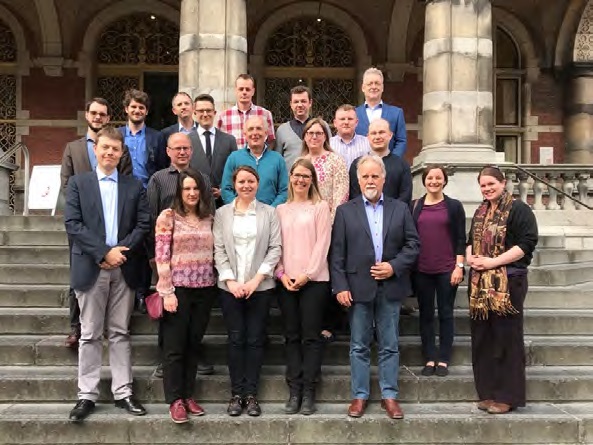A new venture in biofuels research is underway, focusing on advanced biomass catalytic conversion to middle distillates in molten salts, in a H2020 project otherwise known as ABC-Salt.
ABC-Salt launched in April 2018 funded by Horizon 2020’s Research and Innovation Programme. It aims to have a positive effect upon the biomass, biofuel and transport industries by developing new technologies that will reduce dependence on unsustainable fossil fuels.
Eight inter-related work packages have been developed to tackle the challenge of liquefaction and the subsequent catalytic hydro-pyrolysis of biomass in a molten salt environment, followed by the catalytic hydro-deoxygenation of the vapour phase using suitable catalysts to obtain a hydrocarbon suitable for use as a middle distillate biofuel.
ABC-Salt will then operate an integrated lab scale reactor for over 100 hours to provide validation of the whole process, bringing this technology to readiness level 4.
The project includes technical aspects, such as substrate flexibility, biomass liquefaction and hydro-pyrolysis in molten salts, as well as socio and techno-economic viability studies to ensure the future deployment of technologies is suitable.
Integration studies will consider substrate available, supply chains, future and end users and the overall economic sustainability of the process. The holistic approach of this project considers the full value chain with outcomes effectively communicated. A number of ABC-Salt Summer Schools and open workshops will take place, hosted by project partners across Europe to maximise the impact of the project.
ABC-Salt’s first open event will be a summer school in 2019 at Aston University in the UK. The project’s first newsletter is coming soon, with more information coming to ABC-Salt’s new project website soon. Biofuels researchers, industry stakeholders, NGOs and students are invited to find out more at www.abc-salt.eu.

